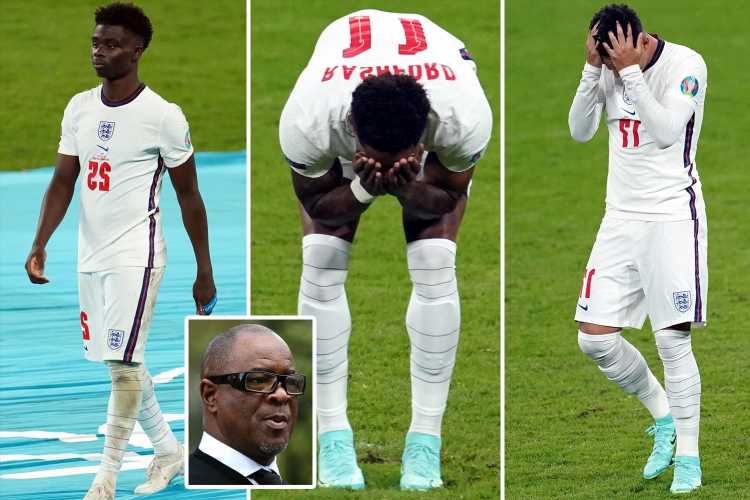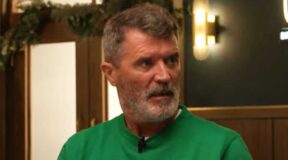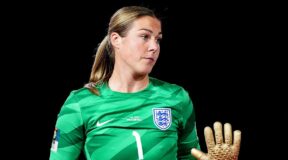THE aftermath of the Euro 2020 Final which saw three young black players horrifically racially abused stirred a reaction on the terraces of football grounds, says ex-Chelsea player Paul Canoville.
A penalty shootout stood between England and their first major men's international trophy in 55 years.
But it wasn't meant to be as Marcus Rashford, Jadon Sancho and Bukayo Saka missed their spot-kicks to seal Italy's historic win at Wembley.
Chelsea's first black player Canoville 'knew right away' the onslaught that was to come for the young Three Lions.
Speaking exclusively to SunSport, he recalled: "They've been given a position where, you know it and I know how difficult it is to take penalties.
"And they put up their hands and said 'governor, I'll take a penalty.'
"They missed or it was saved. I knew right away that when the game finished what was going to happen. I knew right away.
"You knew right away what was going to go on, so why weren't they prepared for that?"
Most read in Football
MATCH TRAGEDY Eight dead including girl, 6, in stampede during Africa Cup of Nations game
Life with Ronaldo is just like any other family’s, says Georgina Rodriguez
Man Utd ace Maguire & partner board star-studded flight as Prem players jet away
Arteta's 'trust the process' drug has worn off… it's top four or the sack
The horrific abuse that followed, which Canoville says was far too predictable, was largely committed by anonymous accounts on social media sites such as Twitter and Facebook.
A mural of Rashford was also vandalised, but swiftly restored and covered with an outpouring of love and support – and the sheer level of fans backing the Manchester United man left him 'on the verge of tears.'
It was a huge wake-up call.
Canoville continued: "Fans do play a part, a big part now at grounds, they don't tolerate it.
"They don't want to see that happening at their club. Simple as.
"So they play a big part in supporting their own team in the fight against racism… it cannot be heard or seen at their football club."
The abuse witnessed in the summer of 2021 also saw fans put rivalries aside.
Arsenal man Saka was greeted with a hero's welcome at the Tottenham Hotspur stadium in a pre-season game.
Both sets of rival fans stood up and applauded the 20-year-old as he made his way onto the pitch in the second half.
Tottenham fans also brandished a banner which said: "North London stands with Bukayo Saka and all players against racism and discrimination. COYS."
Arsenal's training ground was also flooded with letters of support and drawings.
Saka admitted he didn't know how to thank fans for their kind words but found a way in the new season by firing Arsenal into the top-four race alongside Hale End friend Emile Smith Rowe.
Canoville was touched to see such a gesture but insists there's still a long way to go in the fight to rid football of racism.
He said: "When it comes to London Derbies, you know how it is.
"But from both sets of fans showing that support… look who we are representing.
"These young lads are representing England itself. Come on, give them support.
"We can understand when it comes to club games, but when it comes down to the main nation you're playing for, everybody needs to be civil as such.
"It was great to see that and good to hear, but there's a long way to go."
What punishments could potentially be used to kick racism out of football for good?
Canoville says deducting points from clubs whose fans are involved in such incidents would spark a 'serious and fast' response whether the team is at the top or bottom of the Premier League table.
Canners said: "In regards to racism at certain clubs in certain games, for me, a deduction of points – you deduct points, see how serious and fast fans and clubs start to sort it out.
"When you talk about deducting points, those three points, you know at the end of the season how serious they can be.
"Whether you're at the bottom or at the top, those three points can be a vastly important three points.
"Therefore, nobody will want to lose that, but if that's the case, trust me you'll soon see the development of some strategies at the clubs to eradicate it.
"I think that's the serious point where it has got to be done, I really do.
"We've done everything else… a little pat on the hand and a fine and so forth, that's not enough anymore."
Canoville was also subject to horrific racist abuse during his playing days.
In 1982, a then fresh-faced Canoville, 20, made his debut against Crystal Palace at Selhurst Park.
But was met with vile hostility from those he was there representing.
In his autobiography Black and Blue, released in 2008, Canoville recalled having 'we don’t want the n*****, la la la laaa, la la la laaa' chanted towards him.
He wrote: "I felt physically sick… absolutely terrified.
"I made history and the fans made my life hell."
In his Chelsea years, Canoville often looked to himself for answers as to why he was abused.
And his mental health took a big hit as he struggled to deal with the undeserving hate.
But since Roman Abramovich took over Chelsea, steps were made to recognise Canoville's place in Chelsea's history.
Canoville was brought back as an ambassador, often speaking to the Blues' up-and-coming stars, some who you might recognise today.
However, the club took it a step further and named a hospitality suite after him.
He said: "It was difficult and I tolerated the racist abuse by fans.
"And it was hard enough trying to come onto the pitch and play against that, trying to take that out of your mind and concentrate on playing for your team.
"Every time I played away or home, it was the thought pattern of 'what can I do to get their support and win them over?' or 'what am I doing wrong?'
"It was a case of questioning myself and why, and I suppose my mental health took a hit because of that.
"The club has shown support, so much so they've named a suite after me – it's a great honour."
Canoville's lived experience has left him determined to educate the next generation about the effects of racism.
And the Paul Canoville Foundation has decided to take the fight into the classroom.
The 59-year-old also hopes today's role models continue to speak out about any form of discrimination.
Canoville has urged players not to underestimate the influence they hold.
He concluded: "Racism starts from an early age, so what's better than me going into schools and reaching out to those kids.
"And those primary school kids need to understand the effects of racism.
"It's also important that today's players put a message out, because these young kids see them every day and idolise these top players.
"The message from them will be very important as well and that needs to get out there."
Read all about the work the Paul Canoville Foundation is doing within the local community
Source: Read Full Article























